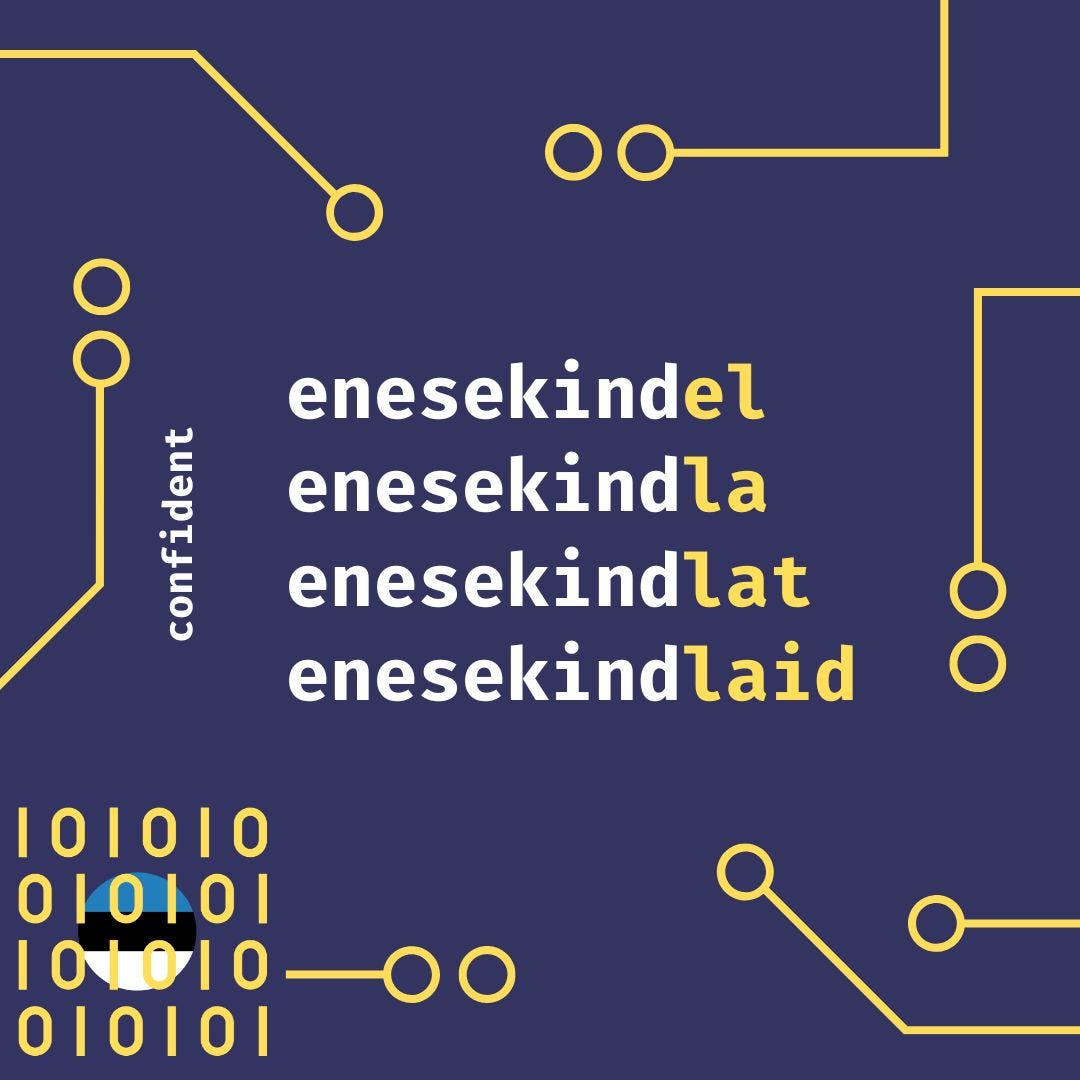Vocab: enesekindel
confident
confident; confident in oneself, in one's abilities and strength
Building blocks
enese- – "of oneself" or "self." It refers to the person, similar to the concept of "self" in English (as in "self-esteem" or "self-confidence").
-kindel – meaning "sure," "certain," or "firm."
When combined, "enesekindel" literally means "sure of oneself."
It’s a loan translation derived from German. The word corresponds to the German "selbstsicher," which also breaks down into similar parts: "Selbst" (self) and "Sicher" (sure or certain.)
In Estonian, "enesekindel" was formed by translating the individual parts of the German word while maintaining the same overall meaning.
How to use it:
Here are a few ways the word “asjakohane” can be used ⬇️
Confidence in everyday situations:
Mari oli tööintervjuul enesekindel ja vastas kõigile küsimustele rahulikult.
Translation: Mari was confident in the job interview and answered all the questions calmly.
Overconfidence or arrogance:
Ta oli liiga enesekindel ja tegi seetõttu lihtsa vea.
Translation: He was too confident and made a simple mistake because of it.
Examples
Rahandusminister Jürgen Ligi, tuntud enesekindlate sõnavõttude poolest, oli seekord ebalev
Literally: “Finance Minister Jürgen Ligi, known confident speeches for, was this time hesitant”
Idiomatically: “Finance Minister Jürgen Ligi, known for his confident speeches, was hesitant this time“
Rahandusminister - Noun - Nominative Sg, "Finance Minister"
Jürgen Ligi - Noun - Nominative Sg, proper name (no translation needed)
tuntud - Adjective - Nominative Sg, "known"
enesekindlate - Adjective - Genitive Pl, "confident"
sõnavõttude - Noun - Genitive Pl, "speeches" or "statements"
poolest - Postposition, "for"
oli - Verb - Past tense, "was"
seekord - Adverb - Indeclinable, "this time"
ebalev - Adjective - Nominative Sg, "hesitant"

